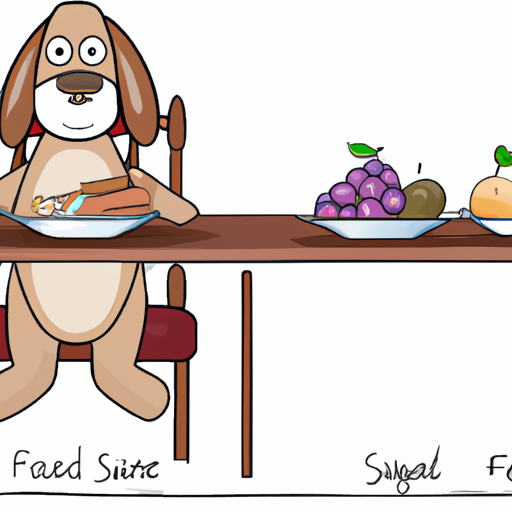As a caregiver, you’re no stranger to the responsibility of maintaining the health of those under your care. And if a four-legged friend falls within your purview, you’ve probably found yourself asking, ‘What can my dog eat?’ or ‘Is this safe for my dog?’
H2: Foods Your Dog Can Enjoy
From the crunch of a carrot to the lushness of a lick of peanut butter, there are several human foods that your dog can not only safely consume, but also enjoy. Here’s a list of some of them:
- Carrots: Low in calories and high in fiber and vitamins, carrots are a great snack for your dog. They also promote dental health by removing plaque from teeth.
- Peanut Butter: This is a favorite treat of many dogs. Not only is it a good source of protein, but it also contains heart-healthy fats, vitamin B, niacin, and vitamin E.
- Chicken: If it’s cooked, boneless, and skinless, chicken is an excellent source of protein for dogs.
- Fish: Salmon and tuna, full of omega-3 fatty acids, are good for your dog’s coat and skin health.
H2: Foods Your Dog Should Avoid
Just as there are foods that are beneficial for your dog, there are also those you should avoid. Some of these foods can cause minor health issues, while others can lead to serious health complications. Here are a few examples:
- Chocolate: This is a well-known doggie no-no. Chocolate contains theobromine, which is toxic to dogs.
- Grapes and Raisins: These seemingly harmless fruits can cause kidney failure in dogs.
- Onions and Garlic: These can cause anemia in dogs by damaging their red blood cells.
H2: Uncertain Foods
Then there are the gray areas – foods that some dogs can handle, while others cannot. You know your dog best, so use your discretion and consult with your vet. Here’s a brief table for your reference:
| Food | Considerations |
|---|---|
| Dairy | Some dogs have no trouble digesting dairy products. Others may experience gastrointestinal upset. |
| Spices | Some spices, like turmeric and ginger, can be beneficial for dogs. Others, such as nutmeg, can be harmful. |
H2: When Your Dog Eats Something They Shouldn’t
No matter how careful you are, there might be instances where your dog eats something they shouldn’t. In such cases, seek veterinary assistance immediately. Symptoms of potential food poisoning in dogs include vomiting, diarrhea, and lethargy.
H2: Frequently Asked Questions (FAQs)
Q: Can my dog eat apples?
A: Yes, but remove the seeds and core first, as they can be harmful.
Q: Is bread okay for my dog to eat?
A: In moderation, plain bread is generally safe. But avoid any bread with raisins or spices.
Q: My dog ate chocolate. What should I do?
A: Call your vet immediately.
Remember, as a caregiver, your role is to ensure the physical and emotional well-being of your charges. When it comes to your furry friends, knowing what they can and cannot eat is a crucial part of maintaining their health.



